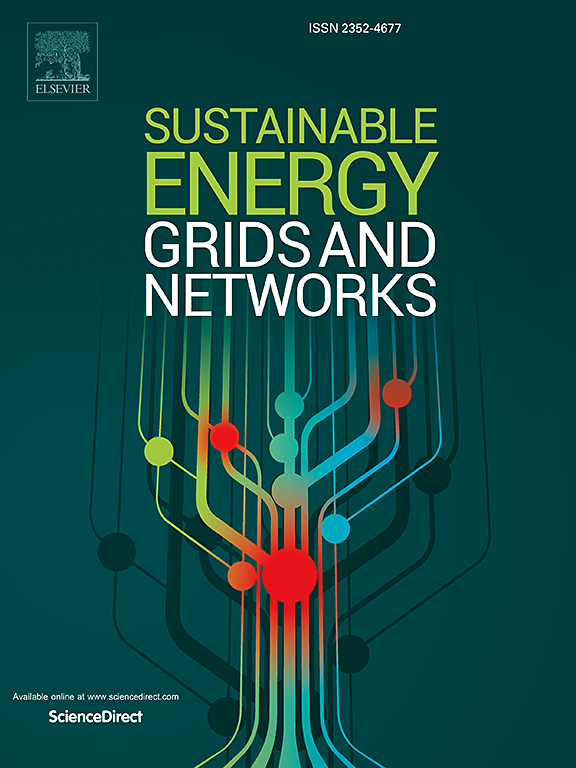Machine learning approaches for the prediction of public EV charge point flexibility
IF 4.8
2区 工程技术
Q2 ENERGY & FUELS
引用次数: 0
Abstract
The increasing number of electric vehicles on the road can play a key role as a source of flexibility for a reliable power system operation. Charge point operators, in particular, can adjust individual electric vehicle charging loads to provide system operators with aggregated energy flexibility, e.g. for congestion management, ancillary services or greenhouse gas emission reduction. However, managing individual charging sessions requires information about the expected session duration and energy demand, which are not available at the beginning of a session. In this work, a novel predictive workflow based on two causality-informed machine learning approaches with different levels of generalization is proposed to predict individual session duration and energy demand. Our key contributions include the development of a cluster-based predictive model for charge points and a user-based predictive model to capture individual charging behaviours, and the comparison of these models using a large-scale, real-world dataset. The proposed approaches were tested on real charging data provided by TotalEnergies, showing that considering user-specific charging behaviours enhances the accuracy performance by 16.1% and 37.9% for predictions of session duration and energy demand, respectively. By leveraging clustering and feature selection techniques, accounting for charge point- and user-specific charging patterns, and utilizing a large-scale real-world charging dataset, the proposed predictive workflow enables a comprehensive comparison of machine learning techniques in terms of accuracy performance when predicting public electric vehicle charge point flexibility.
求助全文
约1分钟内获得全文
求助全文
来源期刊

Sustainable Energy Grids & Networks
Energy-Energy Engineering and Power Technology
CiteScore
7.90
自引率
13.00%
发文量
206
审稿时长
49 days
期刊介绍:
Sustainable Energy, Grids and Networks (SEGAN)is an international peer-reviewed publication for theoretical and applied research dealing with energy, information grids and power networks, including smart grids from super to micro grid scales. SEGAN welcomes papers describing fundamental advances in mathematical, statistical or computational methods with application to power and energy systems, as well as papers on applications, computation and modeling in the areas of electrical and energy systems with coupled information and communication technologies.
 求助内容:
求助内容: 应助结果提醒方式:
应助结果提醒方式:


